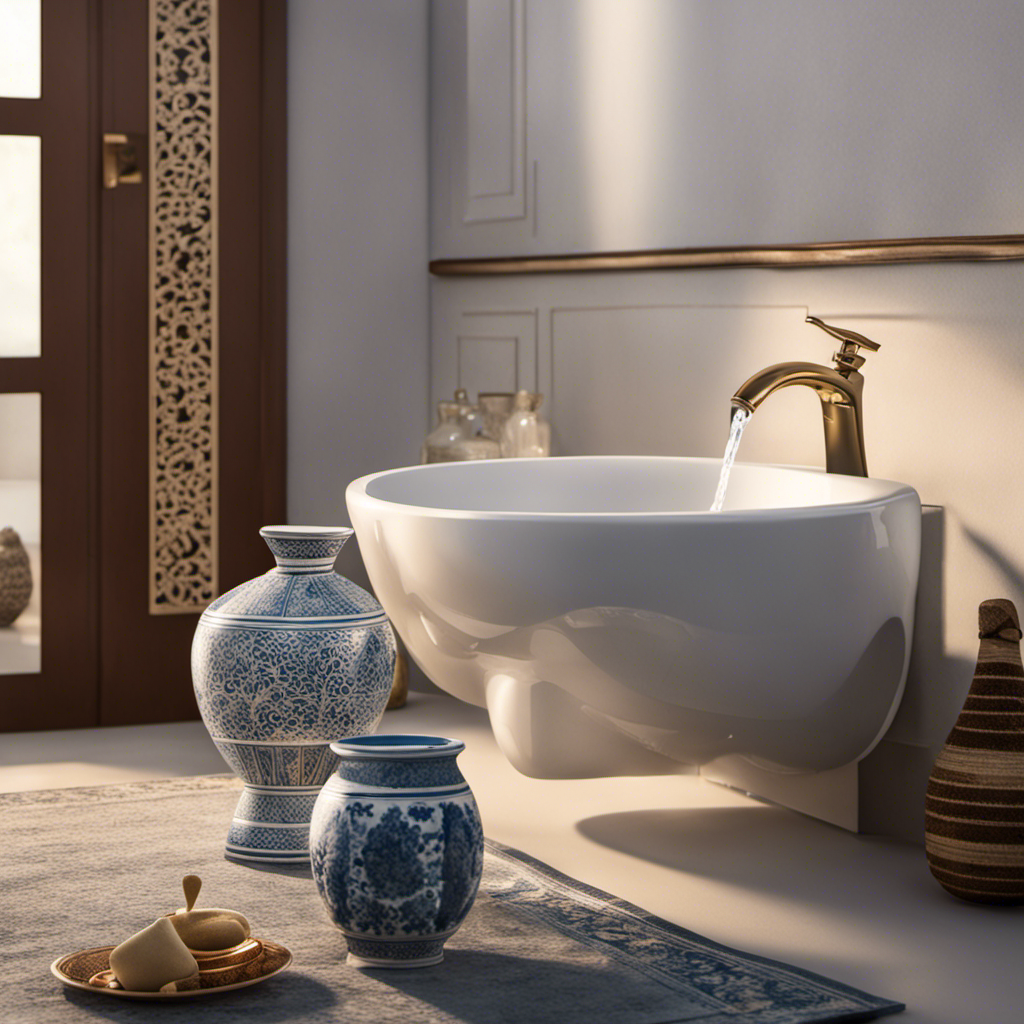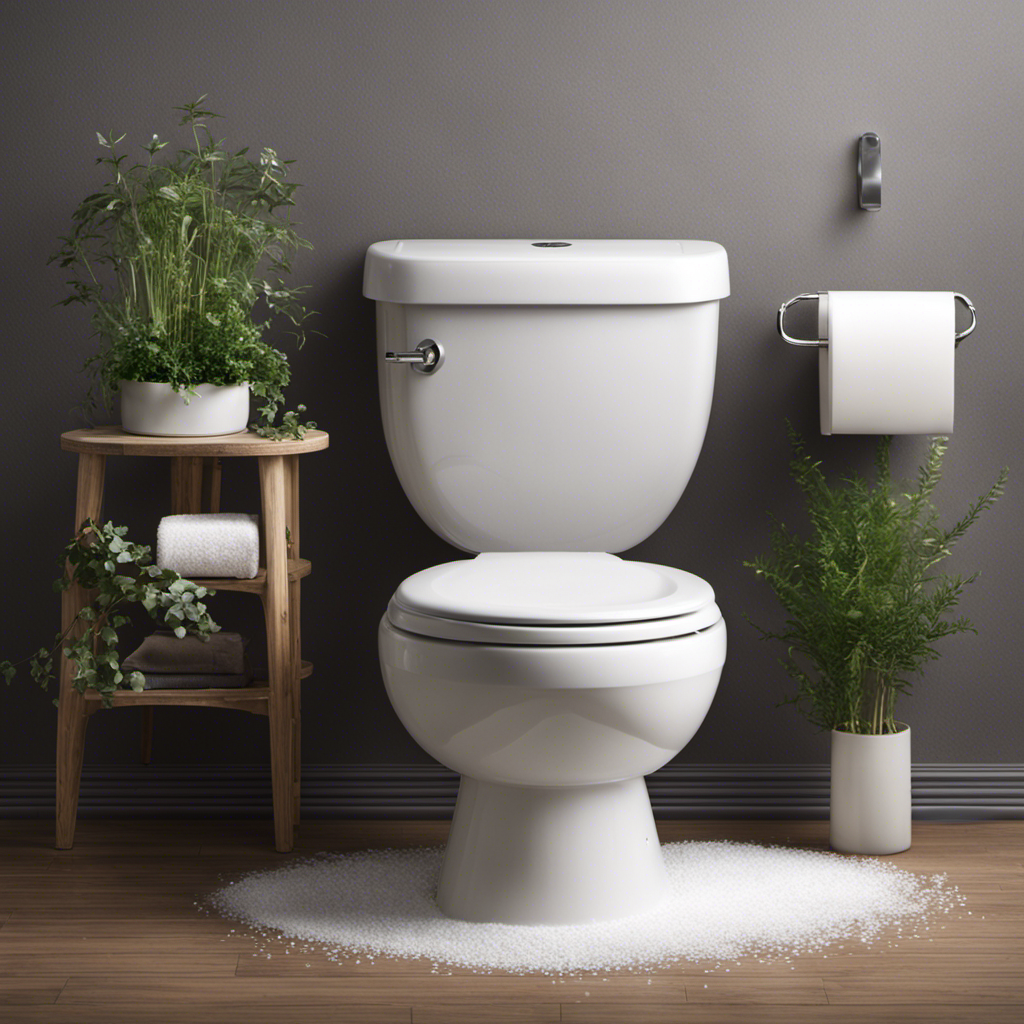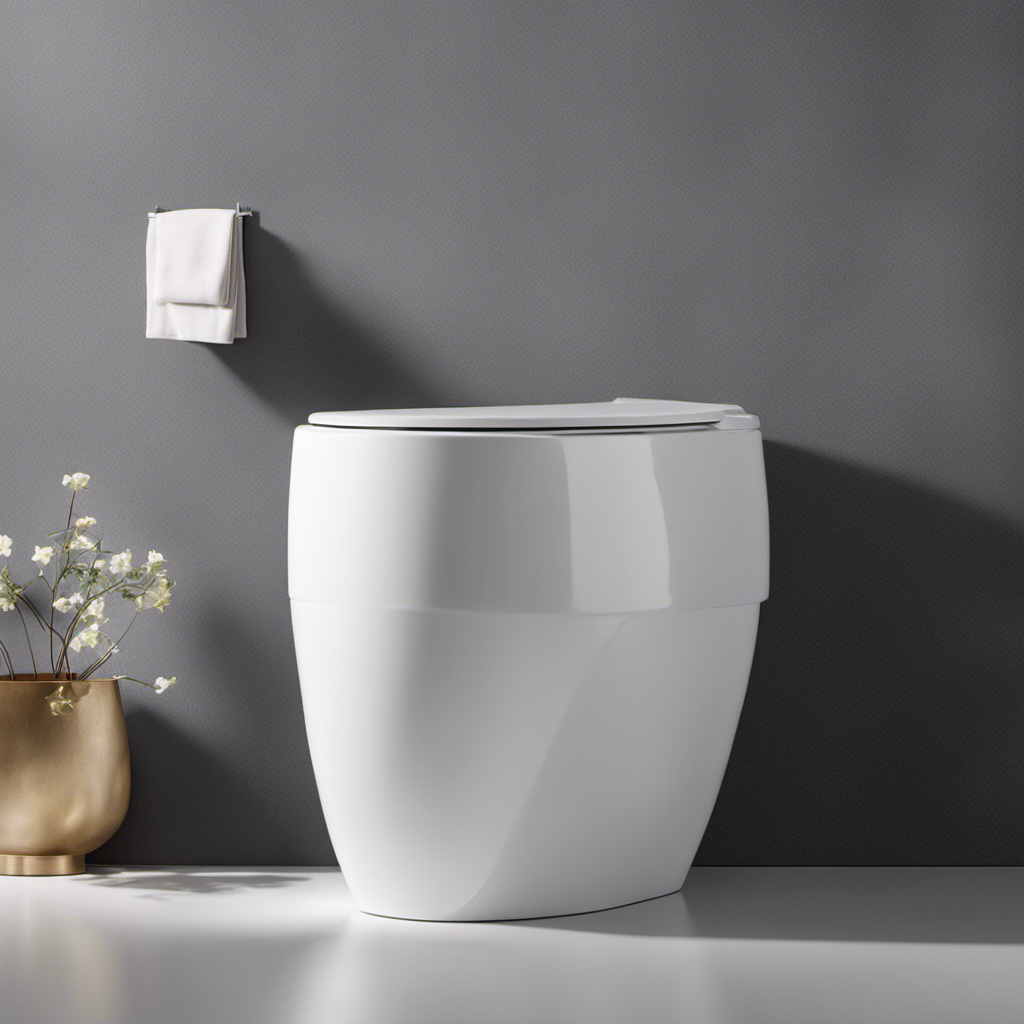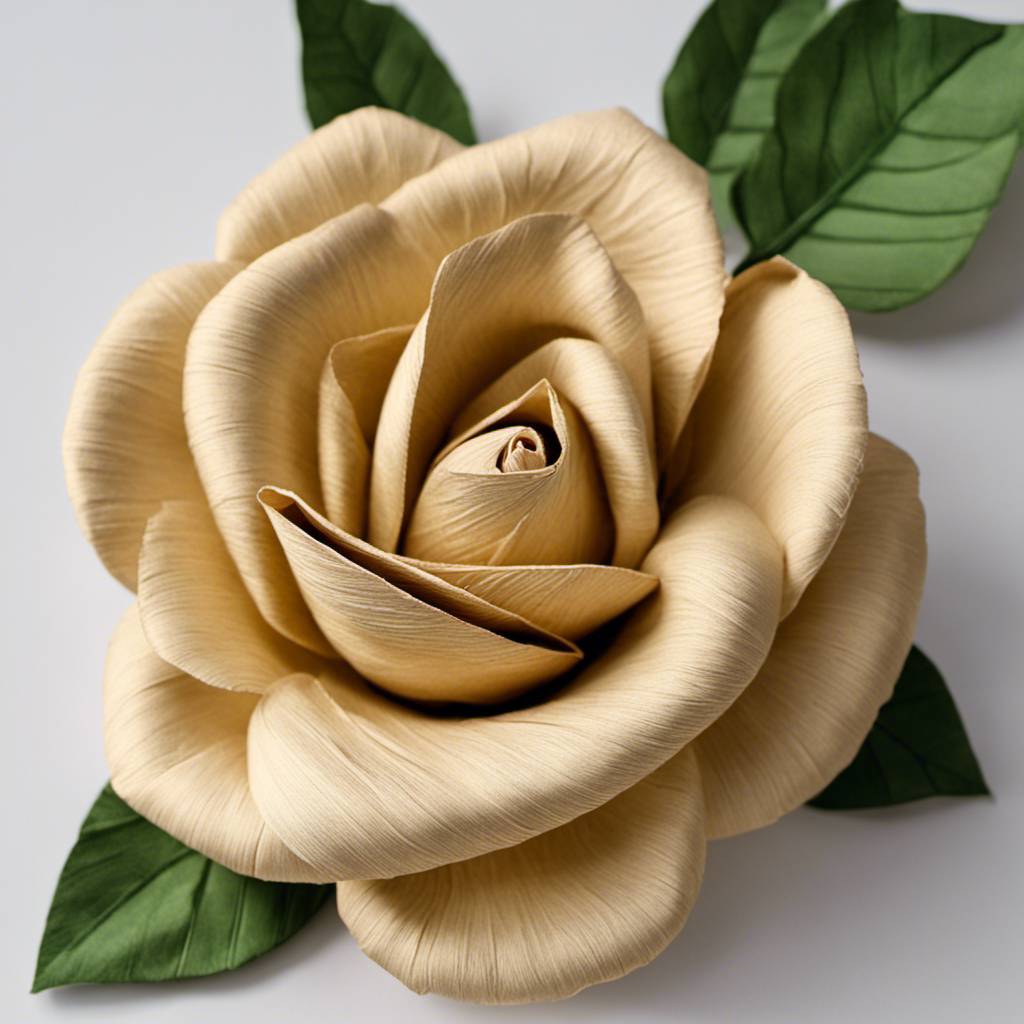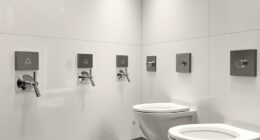As a writer, I understand that discussing cultural practices can sometimes lead to misconceptions and misunderstandings. However, it is important to approach these topics with an open mind and seek knowledge.
In this article, I aim to shed light on the question, ‘Why don’t Muslims use toilet paper?’ By exploring the historical background, Islamic cultural practices, alternative hygiene methods, and environmental considerations, we can gain a deeper understanding and challenge common misconceptions.
Let’s embark on this journey together to broaden our perspectives.
Key Takeaways
- Muslims historically did not use toilet paper due to cultural and religious practices.
- Water and handwashing were preferred methods for cleansing as they ensure cleanliness and align with the Islamic belief of purity.
- Bidet usage is a common alternative hygiene method for Muslims, which involves spraying water onto genital and anal areas for cleansing.
- Understanding and respecting the diversity of hygiene practices, including the preference for water cleansing, is important in promoting inclusivity and cultural understanding.
Historical Background
Muslims historically did not use toilet paper due to cultural and religious practices. Islamic beliefs and cultural practices played a significant role in shaping their hygiene practices.
In Islam, cleanliness is highly valued, both physically and spiritually. Muslims are required to maintain a state of purity, known as ‘Wudu,’ before performing prayers. This involves washing specific body parts, including the hands, face, and feet.
Toilet paper was not commonly used in the past, as it was considered less effective in achieving the desired level of cleanliness. Instead, water and handwashing were the preferred methods for cleansing after using the bathroom. This practice is still prevalent in many Muslim-majority countries, where bidets or water sprays are commonly found in bathrooms.
The use of water not only ensures cleanliness but also aligns with the Islamic belief of maintaining purity in all aspects of life.
Islamic Cultural Practices
Islamic cultural practices include various hygiene customs, such as the use of water for cleaning. Personal hygiene rituals are highly emphasized in Islamic teachings, as cleanliness is considered an essential aspect of one’s faith.
Muslims are required to perform ablution (wudu) before their five daily prayers, which involves washing the face, hands, and feet with water. This not only cleanses the body but also symbolizes purification of the soul.
Additionally, after using the toilet, Muslims use water to cleanse themselves instead of relying solely on toilet paper. This practice, known as istinja, is believed to be more effective in maintaining cleanliness.
Islamic teachings promote the idea of holistic cleanliness, encompassing physical, spiritual, and emotional well-being.
Transitioning into the subsequent section about alternative hygiene methods, it is important to explore the different cultural practices and beliefs that influence personal hygiene choices.
Alternative Hygiene Methods
Transitioning into the subsequent section, it’s important to explore alternative hygiene methods that are influenced by different cultural practices and beliefs.
One such method is bidet usage, which involves the use of water for cleansing purposes. This practice is commonly seen in many cultures around the world, including in parts of Asia, Europe, and the Middle East. Bidets are fixtures that are often found in bathrooms and are used to spray water onto the genital and anal areas to ensure cleanliness.
Water cleansing is preferred by many individuals due to its effectiveness in removing bacteria and preventing infections. It is believed to be a more hygienic and environmentally friendly option compared to toilet paper.
Understanding and embracing alternative hygiene methods like bidet usage can help us appreciate the diversity of cultural practices and promote a more inclusive approach to personal hygiene.
Environmental Considerations
When it comes to environmental considerations, you might want to explore options that are more sustainable and eco-friendly. One way to do this is by using reusable products. Instead of using single-use items like paper towels or plastic water bottles, consider investing in reusable alternatives.
For example, you can use cloth napkins instead of paper ones, or use a refillable water bottle instead of buying bottled water.
Another important aspect to consider is water conservation. By being mindful of our water usage, we can help protect this valuable resource. Simple actions like turning off the faucet while brushing our teeth or taking shorter showers can make a big difference.
By adopting these practices, we can reduce waste and conserve water, contributing to a healthier planet.
Now, let’s explore some common misconceptions about alternative hygiene methods.
Common Misconceptions
If you’re looking to debunk some common misconceptions, it’s important to address alternative hygiene methods.
One such misconception is that Muslims do not use toilet paper. However, this belief is not entirely accurate. While it is true that some Muslims prefer to use water for cleansing after using the toilet, this does not mean that toilet paper is completely avoided.
Cultural hygiene practices vary across different regions and religions, and Muslims are no exception. In Islamic tradition, cleanliness is highly valued, and this extends to personal hygiene as well. Many Muslims use a combination of water and toilet paper for cleansing, ensuring thorough cleanliness.
It is important to understand and respect the diversity of hygiene practices in different religions and cultures, rather than relying on misconceptions.
Frequently Asked Questions
What Is the Historical Significance of Using Toilet Paper in Muslim Cultures?
Using toilet paper in Muslim cultures has historical origins rooted in cultural taboos and religious practices. These practices may vary across different regions and time periods, reflecting the diverse interpretations and customs within the Muslim community.
Are There Any Specific Islamic Cultural Practices That Discourage the Use of Toilet Paper?
Islamic hygiene practices encompass a range of cultural beliefs and alternative methods of cleanliness. It is important to understand that the choice to not use toilet paper is not universal among Muslims and is often influenced by personal preference, environmental impact, and common misconceptions.
Are There Any Alternative Hygiene Methods Used by Muslims That Are Not Mentioned in the Article?
There are alternative hygiene practices used by Muslims that are not mentioned in the article. Islamic hygiene traditions include the use of water, such as bidets or handheld sprayers, for cleansing after using the toilet.
How Do Environmental Considerations Play a Role in the Use of Toilet Paper in Muslim Communities?
As an expert in Islamic hygiene practices, I can explain how environmental considerations shape the use of toilet paper in Muslim communities. The role of bidets and the environmental impact of toilet paper production are key factors to consider.
What Are Some Common Misconceptions About Muslims and Their Use of Toilet Paper?
Common misconceptions about Muslim hygiene practices include the belief that they don’t use toilet paper. However, the cultural and religious reasons behind the use of water, such as cleanliness and purification, play a significant role.
Conclusion
In conclusion, it’s important to understand that Muslims don’t use toilet paper due to their cultural and religious practices. The use of water and alternative hygiene methods has been a long-standing tradition in Islamic societies. This may seem different, but it’s crucial to approach this topic with knowledge and objectivity, avoiding common misconceptions.
Furthermore, considering the environmental impact of toilet paper usage, one can appreciate the sustainable approach adopted by Muslims. By delving deeper into cultural practices, we can broaden our understanding and foster greater respect for diverse traditions.
